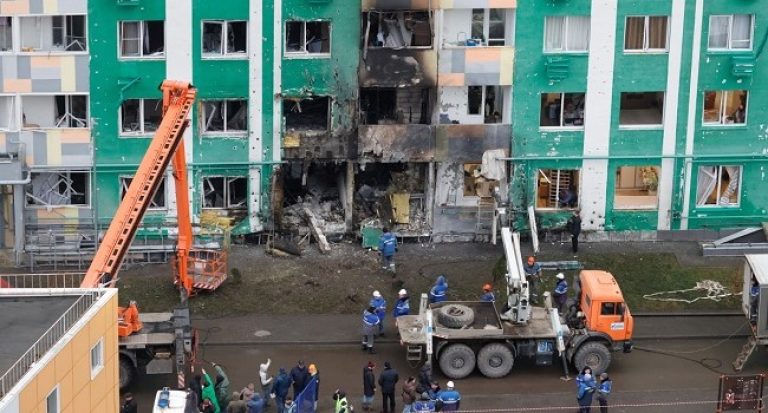
‘We spend N40M monthly to generate electricity
By CHIOMA OBINNA
It is no longer news that health services globally are struggling to both tackle COVID-19, and provide people with the necessary care.
According to the World Health Organization (WHO), countries need to step up health services for all. Because one of the key lessons the COVID-19 Pandemic has taught the world is the consequences of neglecting the health systems.
To ensure better healthcare, one of the Nigerian hospitals that is changing the narratives of the health system and working towards making Nigeria a destination of choice for medical tourism, is the University of Benin Teaching Hospital, UBTH.
The four –year strategic plans of the Hospital, under the current Chief Medical Director, Prof Darlington Obaseki, has brought in new innovations, ranging from computerization of the hospital, introduction of advanced surgeries, patient satisfaction, manpower training and development, staff satisfaction, research to technological innovation, inward medical tourism, funding.
Last week, Professor Obaseki spoke to journalists on his strategic plans shortly after a media tour of the hospital. Sunday Vanguard was there. Excerpts:
Will you say you are happy you have achieved your strategic plans?
We are very proud of our work here. We think we’re one of the top-performing agencies, not just in health in this country. We are very confident about that. People have come and are wondering, regulatory bodies send people here and they keep asking ‘what do you give your staff?
‘Why are they working so hard? ‘You people don’t operate like a government agency.’ If you come here by 7:30 am or 8:00 am, everywhere is buzzing, staff are at work. So we’re very proud of that. Some of these jobs are not about buildings. Some say they judge themselves by how many buildings they’ve put up whether the buildings are functional. We judge ourselves by the functionality of the processes of our system and the joy of our workers.
When we came on board, we deliberately said, in the health care system, the focus is on patient care because they bring us to work. We’ve told ourselves that looking after that patient for a healthcare worker is very demanding, so the people looking after them must, first of all, be happy.
Before we came on board, I was a member of the previous administration that’s how I know, for two and a half years it was war every day.
Almost every two months, one union or the other is on strike, not just UBTH, almost all over the country, till now it’s still happening. But the fact that we’ve not had that is a testimony to the kind of relationship and unity and purpose that we’ve built in the staff and this comes from the fact that we’ve focused on looking after them, their welfare we focused on crafting a vision where we have common goals. What brings us together? We want to make UBTHthe leading provider of quality care solutions in West Africa.
So we’re very proud of what we’ve done and that in itself makes me high and keeps me going Again, the greatest problem I have with my staff now is not whether I care about them or whether I provide things for them. That is the problem, so in terms of IGR, when we came on board in 2017, our IGR was N100 million.
Now, it’s about 300million per month. We are the busiest teaching hospital in Nigeria. We are very confident about that, the only hospital I probably will suspect that is close or better than us is probably Kano with a population of N20 million but most other hospitals don’t even come close. So, we are very busy, if you come to our A& E at times it’s like a market, so it’s very challenging carrying this burden, it’s a burden but we have to do it.
Power supply
We run a functional system since I came on board I don’t think we’ve ever had a day without power in UBTH, even 1 hour. It’s a lot of work and money; you can’t run a hospital without power. If the light goes off for one hour in your hospital, somebody dies; it’s as stark as that, if you look at it from that point of view, any hospital you see that there’s no power is dangerous. When we came on board we focused on the basic things, power, water, and consumables – things the doctors and nurses need to work with. Those are the basic minimum you must start with, if you can’t provide those things you aren’t doing well. Any hospital that cannot provide those shouldn’t be thinking of any other big thing. So, for us, we had to invest heavily in generators.
We have so many generators – over 30 industrial generators – across the length and breadth of this hospital. We spend about N12-N18 million on diesel every month. BEDC bill used to be N15 million every month but since November, they have increased their tariff now and it’s an average of N25 million. So, for power alone, between diesel minus cost of maintaining generators and running it, between diesel and electricity bill we spend an average of N40 million a month just to keep the power on. So it’s challenging.
Computerisation is not just the records; we have computerizedour clinical services, complete end to end from when the patient comes into when they leave.
In that whole set of a very busy clinic, if the light goes off for 5 minutes and the computer shuts down you can imagine the delay it will cost – like an hour or two hours delay so what we’ve done is to provide three layers of back up. The public power supply will store series of inverters that can keep those things on for an hour or more. So, there are three layers of backup, but to be fair to BEDC, they’ve really prioritizedUBTH now so we get an average of 20 hours of light a day unless they have a local problem, which they also respond to us fast, Since almost six months they gave us a dedicated line, so we have a very good relationship
Overwhelming financial burden
Since I came on board we’ve not added the cost to the patient in our prices. All we’vedone is to increase the efficiency of our connections draw loopholes that people are supposed to be paying for that they’re not paying, we make sure they pay. For example, we weren’t charging for our oxygen before but we looked at it, we know how much they’re charging a cylinder of oxygen in Lagos so we just had to add money.
But we are mindful of the impact on the patients. Like I said earlier, it’s about my people, not just my people it’s also about the economy. I’m very much part of my society, I can’t be disconnected so these are the things that push me to take some of the decisions. But it’s tough, especially the COVID year that everything has gone up.
We were sharing a facemask with everybody in UBTH before COVIDwas N500 for a pack of 50. At the peak of July last year it got to about N17, 000. Yet, we never stopped giving it to our staff one day, because here, every decision we take is a life and death decision so you must have a way to go about it.
Brain drain in UBTH
The country doesn’t know what we’re facing. Right now, the health system in Nigeria is facing a collapse if we don’t tackle this issue of doctors’ emigration frontally. We are training doctors for other health care systems elsewhere in the world. I just told you now, the government of Nigeria spends lots of money training me to where I am today and I went abroad for training. I never felt inferior to my colleagues; in fact, they kept asking me if I trained in Europe I would say ‘No, I trained in Nigeria.’ They didn’t believe because of the quality of training and education the federal government gave me almost free of charge, then I’ll just wake up one day carry my bag and vamoose so I don’t know how, but I think there needs to be a major discussion doctor leaving Nigeria. There are some factors involved – there’s the push and pull factor, there are things pushing them away so many of our doctors will tell you insecurity, many have been kidnapped, and they want to go to a country where they don’t have to worry about light or water You can’t overestimate the depth of the crisis facing this country. Here, there’s a cardiothoracic surgeon and the one that’s supposed to do a heart transplant. There are only two of them. If we lose them, that program will crash. It’s beyond me, it’s beyond UBTH it’s a national crisis that should be attacked at the national level. That’s the much I can say about that. I don’t have the figures of doctors that have left, the worst part of it all is they’ll say they are coming back and because we can’t easily replace them, we give the benefit of the doubt. Why will anybody want to go to the dessert, Saudi Arabi, a kind of society where there’s no freedom the way we have it here? To tell you, desperation not just about money
Nigeria has been good to some of us but many people don’t see it that way I trained herein UNIBEN as a doctor. I finished 1991, and we stayed practically free of charge. The country did that for me. You can’t go and stay in America and you won’t pay debts for the next couple of years. Some of us are very much aware of that but we don’t talk about it. Any Doctor that says Nigeria isn’t doing well is not grateful to God and to this country because medical education anywhere in the world is expensive but here we practically getting it free or subsidized, so I’m blessed and I feel we need to give back.
Cancer treatment
We set up a dedicated cancer ward just for cancer patients – about 40 beds only for cancer patients where we have dedicated, trained specialised cancer nurses, oncologists, a pharmacist with a pharmacy inside the ward. Two different centres have requested that we show them what we’re doing. Cancer chemo drugs are very expensive. Most times, when you buy one vial you won’t use all of it but you’re not allowed to keep it so you have to throw it away and buy another one next time. So what we did is, we set up a machine there, what we call micro-dosing, that allows us if we buy one vial we can share it among five patients. So that has crashed the cost of getting these drugs to cancer patients. We are the first centre in Nigeria to do this and we can’t allow this to go down. It requires a special chamber. The linear accelerator, the cancer machine, has been down since I came on board. It’s something that worries me.
I’ve done a lot to try to bring it on. That machine was the only one taking care of the whole of the South-South of Nigeria, people come from all places to come and take treatment here. It broke down 6/7 years ago. Last year, I went to Dubai and I met the manufacturers. I even got a letter from Sweden. They agreed to give us two new machines and also promised to remove the faulty one and give us the latest model. That was January last year and they also agreed that they’ll spread the cost of payments over five years. Somebody just paid one-fifth of the amount. But COVID-19 happened so now we’re back again looking for somebody to fund that. We’re trying to get to the Federal Government but we’ve not been able to succeed.
We’re working on it, because like the one in LUTH it’s an aself-sustaining model. The volumes are there. We’ve done the business outlay, that N1 billion we’ll make it back in one year. But to just get somebody to take the risk, I’ve met more than five different groups of investors I have a business case. I’m a pathologist. My area is cancer so it’s something I’m passionate about we are working on it. (Vanguard)








